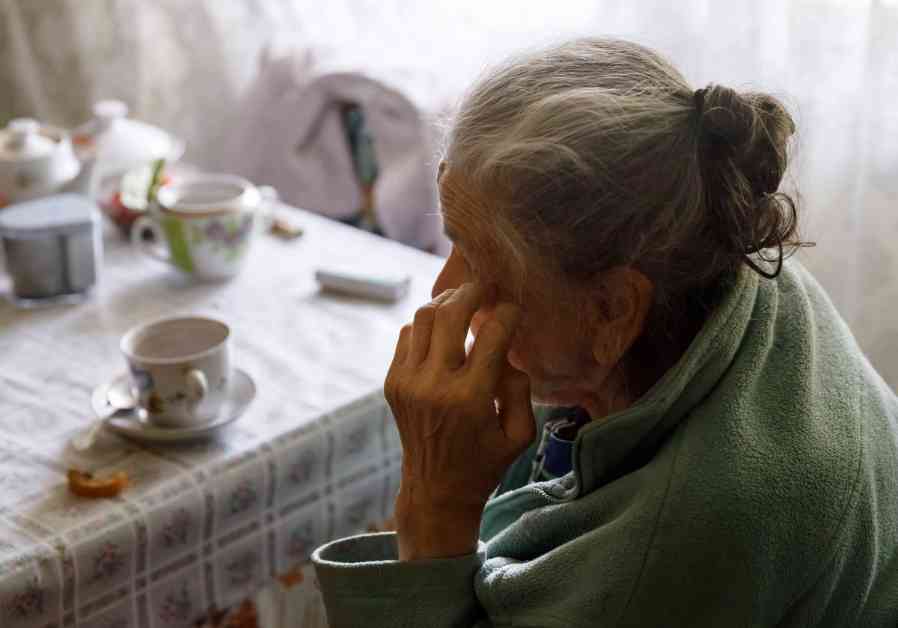Pensioners Struggle with Fuel Poverty Due to Ofgem Price Cap Hike
Pensioners across the country are facing a bleak winter as Ofgem increased its price cap, resulting in average household bills potentially rising by £149 from October. This financial blow comes on the heels of the government’s decision to means test the winter fuel payment for pensioners, leaving many of society’s most vulnerable individuals in a precarious position. The loss of this payment, which could range from £100 to £300, means that pensioners are now forced to make difficult decisions between heating their homes and putting food on the table.
The Impact on Vulnerable Pensioners
Individuals like Philip Mulholland from Mansfield are particularly affected by the recent developments. Philip, who suffers from Raynaud’s and systemic scleroderma, relies on keeping his council bungalow well-heated to manage his health conditions. The 73-year-old has been rushed to A&E multiple times during the winter due to complications related to his conditions, making it essential for him to maintain a constant temperature of 21 to 22 degrees Celsius in his home.
Philip shares, “It means I’m going to be paying a bit more in fuel, but unfortunately, I can’t do without that fuel. It’s one of those things that I have no choice but to keep warm.” He further explains, “The first instance is my hands and feet don’t work as they should do, so I’ve got to be very careful in picking up a boiling kettle, for instance. I then get arthritic pain in my chest that feels like a heart attack.”
Having worked as an electrician throughout his life, Philip now relies on a small pension to make ends meet. With the impending changes to the winter fuel payment scheme, he faces the daunting prospect of going into debt to afford the increased heating costs.
The Struggle Continues
The government’s decision to restrict the winter fuel payment to only the poorest pensioners has sparked outrage among many older adults who rely on this support to stay warm during the colder months. Caroline Abrahams, charity director at Age UK, criticizes the move, stating that it is “reckless and wrong” and will have devastating consequences for pensioners on low and modest incomes.
Pauline, who resides in South West Scotland, shares her concerns, “My husband and I are both disabled, and I have poor circulation, making it challenging for me to tolerate the cold even at 18 degrees. My husband is recovering from cancer and suffers from chronic obstructive pulmonary disease (COPD) and emphysema.”
She adds, “We live in a hard-to-heat flat, and during winter, we spend over £100 a month on gas alone. Despite my husband’s service in the armed forces and as a volunteer coastguard, we are now facing financial hardship after decades of hard work.”
The Plight of Working Pensioners
Dorothy, a 70-year-old woman from North Yorkshire, voices her frustration at having to continue working to cover her bills. She explains, “I’m 70 and still need to work to earn £18,000. I have savings for when I can’t work anymore, but it means I can’t get help. I live in a draughty Victorian terrace.”
Her situation highlights the challenges faced by many older adults who find themselves in similar circumstances, struggling to make ends meet despite decades of hard work and contributions to society.
Calls for Change
Both the Conservatives and the Greens have called for winter fuel payments to be made available to all pensioners this winter in response to Ofgem’s price cap hike. Means testing the winter fuel payment is expected to save the government £1.4 billion this year, with Labour arguing that it is necessary to bridge the gap between previous spending plans and available funds.
Labour has also criticized the lack of investment in energy efficiency and renewable power under the previous government, emphasizing the need for sustainable solutions to address the rising energy costs faced by millions of households in the UK.
Fiona Waters, spokesperson for Warm This Winter, highlights the urgency of the situation, stating, “This price hike is yet another blow to the 6.5 million in fuel poverty who are still paying 65% more for their energy than at the start of the crisis.” She calls for government intervention to ensure that resources are allocated to support those most in need during the winter months.
The Road Ahead
As the winter approaches, many pensioners find themselves grappling with the harsh reality of fuel poverty and the challenges it brings. The government’s decision to means test the winter fuel payment has left many older adults in a precarious position, forcing them to make difficult choices to stay warm and healthy.
It is crucial for policymakers to consider the impact of their decisions on vulnerable populations and work towards implementing sustainable solutions that address the root causes of fuel poverty. By prioritizing the well-being of pensioners and ensuring that they have access to essential resources, we can create a more equitable society where everyone can live comfortably and securely, regardless of their age or financial circumstances.












